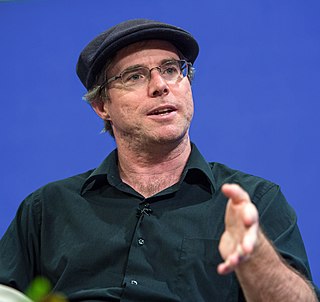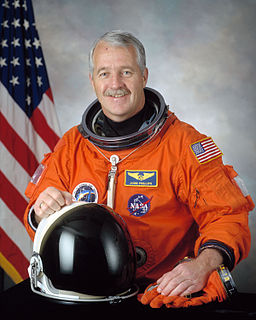A Quote by Ellen Stofan
Mars missions will require up to three years in reduced gravity, so we need to make sure astronauts can not only survive but thrive as they move outward to explore this new world.
Related Quotes
By 2025 we expect new spacecraft designed for long journeys to allow us to begin the first ever crewed missions beyond the Moon into deep space. So we'll start by sending astronauts to an asteroid for the first time in history. By the mid-2030s I believe we can send humans to orbit Mars and return them safely to Earth. And a landing on Mars will follow and I expect to be around in see it.
The single best thing about Mars is the reduced gravity. It's 38 percent of Earth's gravity - about one third. Almost never have you seen that portrayed in film or television. Mars is just portrayed as a place that's got reddish sand but is otherwise pretty much identical to the Mojave Desert, and that's not the case.
Typically to get toward a productive outcome in negotiation you have to make the initial move of genuinely exploring someone's model. If you don't, it is unlikely that they will be willing to explore yours. And if you genuinely explore and understand theirs - without judging it - they will be willing to explore yours. Once they reach that point, they are primed to explore the productive combination of both models and won't be as obsessed about trying to make sure their model prevails.
Without investments in research and science that will create the next Apple, create the next new innovation that will sell products around the world, we will lose. If we're not training engineers to make sure that they are equipped here in this country, then companies won't come here. Those investments are what's going to help to make sure that we continue to lead this world economy not just next year, but 10 years from now, 50 years from now, a hundred years from now.
The first men who set out for Mars had better make sure they leave everything at home in apple-pie order. They won't get back to earth for more than two and a half years. The difficulties of a trip to mars are formidable. . . . What curious information will these first explorers carry back from Mars? Nobody knows-and its extremely doubtful that anyone now living will ever know. All that can be said with certainty today is this: the trip will be made, and will be made . . . someday.
I want to explore a new place each year, and it can be within India. When I was shooting for 'Mohenjo Daro', I couldn't travel out of the country for two years. But it gave me an opportunity to explore new places within India. I'm sure there are so many places to explore in India, and I would love to go there.
Consumers cannot think in abstractions. They cannot envision a new concept. They cannot predict their behavior. They can only compare against their current frame of reference. So you need to make the big leap for them. You need to provide them with a reason to buy, a reason to brag to their friends. Expect new-to-the-world ideas to fall on deaf ears. Consumers will, however, change their tune when they can see, touch, and explore.
In 'Birth,' I explore the nature of the new world we are approaching with my business-spiritual model, a new model for a new world. This view will enable individuals, companies and even nations to move from collapse to positive change, and bring together the spiritual and the material, giving birth to a new future.



































